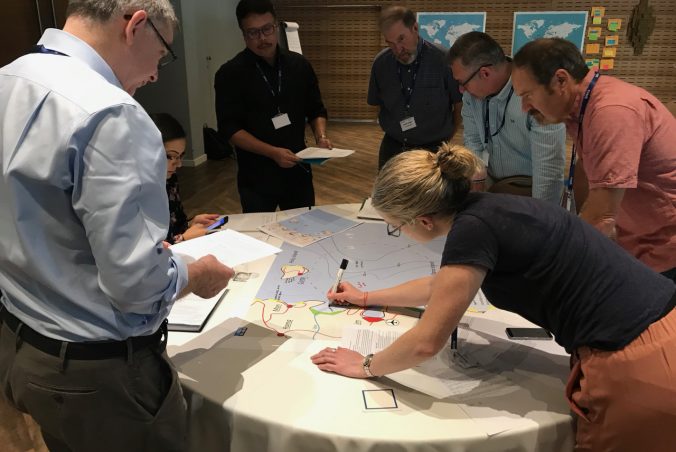
Groundbreaking workshop in Cyprus to define an oil industry oiled wildlife preparedness programme
Sea Alarm organised and facilitated an IPIECA workshop in Cyprus in November 2019, under the auspices of the IPIECA Oil Spill Group. The workshop brought together oil company decision-makers and subject matter experts who have an influence on oiled wildlife planning within their companies.
The aims of the workshop were to explore the future of oiled wildlife preparedness and response for the oil industry, building directly on the principles set out in the IOGP/IPIECA Good Practice Guide on Wildlife Response Preparedness and to explore how to effectively build an oil company’s wildlife preparedness and response capability, focusing on the key components that comprise an effective oiled wildlife response program for the industry.
The 3-day event, facilitated by Sea Alarm, was attended by 30 experts from nine oil companies, oil industry cooperatives, a regional seas secretariat and three wildlife response organisations. Participants were submerged in an environment of “active learning” (no PowerPoint presentations allowed!) where the collective knowledge and insights of the group were explored and documented via a series of tasks, exercises and discussions. As a result of that moderated process, the group developed a clear vision of the further development of oiled wildlife preparedness, and the integration of this topic into ongoing industry oil spill preparedness programmes.
On the basis of this vision, Sea Alarm developed a road map of recommendations which included strategic, collaborative and innovative activities to firm up international wildlife response preparedness. The road map includes contributions that can be made by experts and decision makers within individual oil companies, oil response cooperatives, Oil Spill Response Organisations (OSROs), shipping and other industry advisor positions, international organisations (both governmental and non-governmental) and oiled wildlife response specialist groups.
The workshop evaluation discussion revealed that everyone benefited from the active learning approach, which demystified the topic and allowed each participant to feel very positively engaged, learning from the others and feeling more closely aligned and inspired to champion the subject of oiled wildlife preparedness for industry. The follow-up to this workshop and the resulting recommendations will be organised under the auspices of the IPIECA Oil Spill Group.


